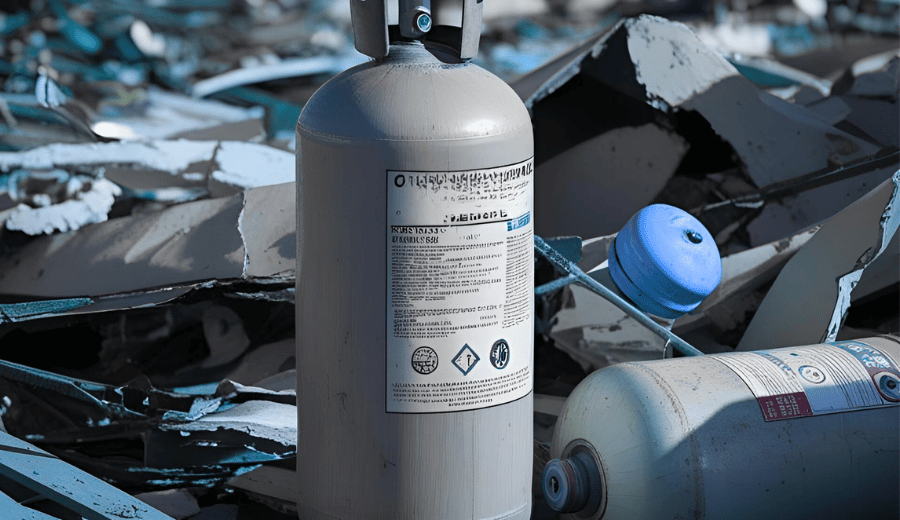
The risk of hurricanes, floods, wildfires, and other natural disasters is rising—and with it, the danger posed to compressed gas cylinders that may be exposed to extreme conditions.
Whether you work in industrial gas, healthcare, food and beverage, or any other sector that uses compressed gases, it’s essential to know how to safely handle and inspect cylinders after a disaster.
To help, the Compressed Gas Association (CGA) offers two free, publicly available safety alerts that provide critical guidance:
- CGA SA-30: Handling Cylinders After Natural Disaster Exposure
- CGA SA-31: Receiving Cylinders After Natural Disaster Exposure
(No login required to download)
These alerts are designed to support first responders, facilities managers, safety professionals, and anyone who may encounter compressed gas cylinders in the aftermath of an emergency.
Why This Matters
Compressed gas cylinders contain materials that may be flammable, toxic, oxidizing, or capable of causing asphyxiation—and they’re stored under pressure. When these containers are damaged during a disaster, they may leak or fail, posing serious risks to human health and safety.
Cylinders exposed to hurricanes, flooding, fire, tornadoes, or earthquakes may be:
- Submerged in floodwaters
- Damaged by falling debris or impact
- Contaminated with oil, grease, mud, or sewage
- Knocked over or disconnected from equipment
Even cylinders that appear intact may have compromised safety features.
What You Should Do
If you encounter any compressed gas cylinders after a disaster:
- Do not touch or move damaged cylinders
- Do not attempt to vent, open, or depressurize a cylinder yourself
- Contact emergency services or the cylinder supplier immediately
- Only trained professionals—such as emergency responders with HAZMAT training—should handle damaged or leaking cylinders
The CGA safety alerts provide detailed steps for assessing cylinders, preventing further hazards, and ensuring safe transfer or disposal.
Download the Safety Alerts Now
These life-saving resources are free to access and share:
- 🔗 CGA SA-30: Handling Cylinders After Natural Disaster Exposure
- 🔗 CGA SA-31: Receiving Cylinders After Natural Disaster Exposure
Please share with colleagues, safety managers, and anyone in your network who may benefit.
REMEMBER: Untrained individuals should never attempt to handle damaged compressed gas cylinders. Always prioritize safety and contact trained professionals.